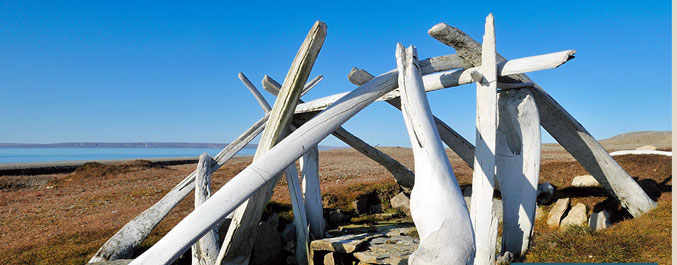
Don’t Know Much About Gods
Today I am in Niles, Michigan. The Niles area is rural. Niles is a small town by comparison to towns in the Chicago suburbs. I am situated in Starbucks within a Martin Food store, that is large, offering a wide variety of foodstuffs and services. The mom standing in front of me waiting to place an order affirmed that this Martin Foods is the social center of town.
Here in Niles, Trump yard-signs are to be seen here and there while driving streets through town. Rural, conservative in spirit, unlike Batavia where I live. Parents with two young boys seated in a booth next to mine, seemed to be dressed in their “Sunday best.” Today is Holy Saturday. Tomorrow is Easter, a day of re-memberance of the resurrection story. Church sanctuaries will be at capacity.
Admittedly the day before Easter is a somber day. How many innocents have been routinely decreed guilty, and put in the ground throughout history? It still happens a lot.
It seemed apt to offer some excerpts from a T. S. Eliot poem. Eliot writes that a river, or the sea suggests a mysterious, dispassionate power. This formidable power we believe we have dealt with. We’ve scienced, and engineered damns and bridges, etc., etc.. We are “worshipers of the machine” after all. Feats of technology though, are not enough. There’s something wild, undefined in the sea, and the same wildness is within us too. The wildness is fascinating, attractive. But it is also lethal.
Sometimes I just want to say “fuck!” at the decay, the mortality-collision that forecloses all of my imagined futures. Flowers wither and fall down silently. I have thought about this for some time now. What is to be done? Well, nothing. And I find myself praying silently. I still pray sometimes, involuntarily, as a reflex. I wonder if others feel as I do? As Eliot writes, “People change, and smile: but the agony abides.” There is no end to the drift of the sea, the drifting wreckage. Such a description as this seems ‘spot on’ to me. Much of what I as American had relied upon, thought firm and beneficial – breaks apart at warp speed.
So much for my illusions. “And the way up is the way down, the way forward is the way back.”
I
I do not know much about gods; but I think that the river
Is a strong brown god—sullen, untamed and intractable,
Patient to some degree, at first recognized as a frontier;
Useful, untrustworthy, as a conveyor of commerce;
Then only a problem confronting the builder of bridges.
The problem once solved, the brown god is almost forgotten
By the dwellers in cities—ever, however, implacable.
Keeping his seasons and rages, destroyer, reminder
Of what men choose to forget. Unhonored, unpropitiated
By worshipers of the machine, but waiting, watching and waiting…
The river is within us, the sea is all about us;
The sea is the land’s edge also, the granite
Into which it reaches, the beaches where it tosses
Its hints of earlier and other creation:
The starfish, the horseshoe crab, the whale’s backbone;
The pools where it offers to our curiosity
The more delicate algae and the sea anemone.
It tosses up our losses, the torn seine,
The shattered lobsterpot, the broken oar
And the gear of foreign dead men. The sea has many voices,
Many gods and many voices…
II
Where is there an end of it, the soundless wailing,
The silent withering of autumn flowers
Dropping their petals and remaining motionless;
Where is there an end to the drifting wreckage,
The prayer of the bone on the beach, the unprayable
Prayer at the calamitous annunciation?
There is no end, but addition: the trailing
Consequence of further days and hours,
While emotion takes to itself the emotionless
Years of living among the breakage
Of what was believed in as the most reliable—
And therefore the fittest for renunciation…
There is no end of it, the voiceless wailing,
No end to the withering of withered flowers,
To the movement of pain that is painless and motionless,
To the drift of the sea and the drifting wreckage,
The bone’s prayer to Death its God. Only the hardly, barely prayable
Prayer of the one Annunciation.
It seems, as one becomes older,
That the past has another pattern, and ceases to be a mere
sequence—
…People change, and smile: but the agony abides.
Time the destroyer is time the preserver,
Like the river with its cargo of dead negroes, cows and chicken coops,
The bitter apple, and the bite in the apple.
And the ragged rock in the restless waters,
Waves wash over it, fogs conceal it;
On a halcyon day it is merely a monument,
In navigable weather it is always a seamark
To lay a course by: but in the sombre season
Or the sudden fury, is what it always was…
And the way up is the way down, the way forward is the way back.
You cannot face it steadily, but this thing is sure,
That time is no healer: the patient is no longer here.
The Four Quartets by T. S. Eliot, The Dry Salvages, excerpts
(The Dry Salvages—presumably les trois sauvages—is a small group of rocks,
with a beacon, off the N.E. coast of Cape Ann, Massachusetts.
Salvages is pronounced to rhyme with assuages.
Groaner: a whistling buoy.)
To read the entire poem, The Dry Salvages, CLICK HERE.
At first blush this ballad seems to have nothing to do with “Gods” or with resurrection. On the contrary, Burton Cummings anthem Stand Tall, reaches into the soul with the appeal for strength enough to be a best version of ourselves. Enjoy!